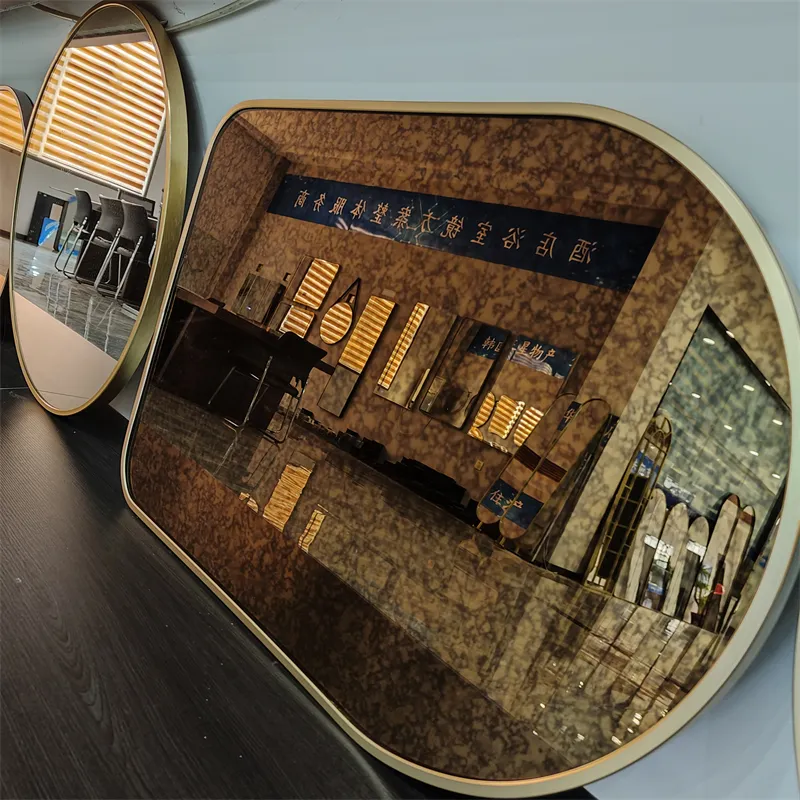Dec . 11, 2024 09:59 Back to list
High-Quality Tempered Glass Manufacturing Facility for Advanced Construction Solutions
The Importance of Tempered Glass in Modern Manufacturing
In today's fast-paced world, safety and durability are paramount in various sectors, including construction, automotive, and interior design. One of the key players in enhancing these qualities is the tempered glass factory, where specialized processes transform ordinary glass into a strong, resilient material that meets the demands of modern applications.
Tempered glass, also known as toughened glass, is created through a heating and cooling process that significantly increases its strength compared to standard glass. The production begins with raw glass sheets, which are heated to extremely high temperatures of about 620 to 680 degrees Celsius (approximately 1,148 to 1,256 degrees Fahrenheit). This heat treatment alters the glass's internal structure, preparing it for rapid cooling. Once the glass is heated, it undergoes a process known as quenching, where it is rapidly cooled using jets of air. This sudden temperature drop strengthens the glass and makes it substantially more resistant to breakage. In fact, tempered glass can be up to five times stronger than its untreated counterpart, making it an ideal choice for various applications.
One of the primary benefits of tempered glass is its safety features. In the event of breakage, tempered glass shatters into tiny, blunt pieces, significantly reducing the risk of injury compared to regular glass, which can break into sharp shards. This characteristic makes it a preferred material in environments with a high risk of impact, such as shower doors, glass railings, and storefronts. The safety factor is vital in both residential and commercial buildings, where the risk of accidents needs to be minimized.
In the automotive industry, tempered glass plays a critical role. It is commonly used in car windows and windshields due to its strength and ability to withstand the stresses of different weather conditions. The use of tempered glass in vehicles not only enhances passenger safety by minimizing the risk of injury during accidents but also adds a layer of durability against external elements, such as debris and harsh weather. Car manufacturers increasingly rely on tempered glass to meet stringent safety regulations while ensuring a clear line of sight for drivers.
tempered glass factory

Moreover, the versatility of tempered glass allows it to be tailored for various architectural designs. Its ability to be cut and shaped enables architects and designers to create stunning installations, ranging from large glass facades to intricate glass partitions. This adaptability has led to a rise in the use of glass in modern architecture, as it allows for an abundance of natural light and open spaces, improving the overall aesthetic appeal of buildings.
In addition to its physical properties, tempered glass also has applications in energy efficiency. Many tempered glass products are designed to meet energy standards, reducing heating and cooling costs in buildings. By reflecting solar energy and minimizing heat transfer, tempered glass can contribute to creating environmentally friendly structures. As architectural trends continue to focus on sustainability, the role of tempered glass becomes increasingly significant.
The tempered glass factory itself is a marvel of engineering, incorporating advanced technologies and strict quality control measures. Manufacturers continuously invest in state-of-the-art production facilities to ensure efficiency, safety, and high-quality output. The manufacturing process involves careful monitoring of temperatures, timings, and cooling processes, guaranteeing that the final product meets rigorous industry standards.
In conclusion, the tempered glass factory represents a vital segment of modern manufacturing, providing a safe, durable, and versatile material essential for various applications. With its remarkable strength, safety features, and adaptability, tempered glass has become integral to architecture, automotive design, and other industries. As technology continues to advance, the future of tempered glass promises even more innovations, further solidifying its role in enhancing safety and aesthetics in our daily lives. Whether in the form of elegant buildings or safer vehicles, tempered glass stands as a testament to the remarkable achievements of modern manufacturing.
-
Safety and Style with Premium Laminated Glass Solutions
NewsJun.24,2025
-
Reinvents Security with Premium Wired Glass
NewsJun.24,2025
-
Premium Float Glass Line for Modern Architecture
NewsJun.24,2025
-
Low Emissivity Glass for Energy-Efficient Architecture
NewsJun.24,2025
-
High-Performance Insulated Glass Solutions for Modern Architecture
NewsJun.24,2025
-
Elevates Interior Style with Premium Silver Mirror
NewsJun.24,2025
Related PRODUCTS














